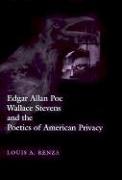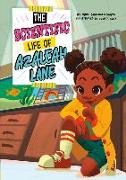Edgar Allan Poe, Wallace Stevens, and the Poetics of American Privacy
BücherAngebote / Angebote:
In his ingeniously argued new study, Louis A. Renza extends the idea of privacy beyond the received wisdom of its popular legal and psychological conceptions and, iconoclastically, beyond its conception in postmodern literary theory to show that the public-private paradigm has import for American literary texts past and present.It is a truism of cultural studies that the interior space of imagination is socially constructed and thus that the private is ineluctably political. But Renza shows, through a brilliantly original analysis of works by Edgar Allan Poe and Wallace Stevens, that as an effect of reading and writing, a real or "radical" privacy continually resists appropriation. In admirably close readings of Poe's tales, his long essay Eureka, and Stevens's Harmonium poems, Renza demonstrates that both writers ground the concept of privacy in the possibility of multiple interpretations of their texts. By thematically engaging in their work the inescapable public/private dichotomy of artistic creation, they create a highly personal idiom that, like Poe's "purloined letter, " allows them to "hide in plain sight" and in that way to finesse public constructions of meaning.The poetics Renza compellingly elucidates offers a refreshing alternative that allows for the "radical" autonomy of authorship without resorting to vague elitist claims of individual genius. His thoughtful readings are a major contribution to traditional Poe and Stevens scholarship, and his challenging thesis will provoke new investigations into the privacy issue in American literature as a whole.
Folgt in ca. 15 Arbeitstagen




